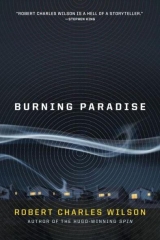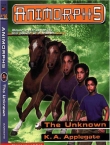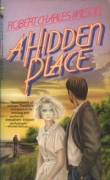
Текст книги "Burning Paradise"
Автор книги: Robert Charles Wilson
сообщить о нарушении
Текущая страница: 6 (всего у книги 20 страниц)
9
 ON THE ROAD
ON THE ROAD
CASSIE TOOK THE LAST SHIFT BEHIND THE wheel and drove until she spotted a Designated State Campground marker where a side road cut into the piney wilderness north of Decatur, Illinois. There was a chain across the road and a wooden sign hanging from it—FACILITIES CLOSED SEPT 20 TO MAY 30—but Leo kept a bolt cutter in the trunk, so that wasn’t a problem.
The campground was a clearing in the forest dotted with stone-lined fire pits. The night was too chilly for open-air camping, but Beth spotted a cabin set back among the pines, and the padlock on the door yielded to a second application of Leo’s bolt cutter. The cabin barely qualified as shelter—inside, they found a yellow mattress askew on an ancient box spring, a sofa pocked with cigarette burns, and patches of black mold like Rorschach blots on the bare board walls—but it kept out the wind.
Cassie’s first order of business was getting Thomas settled. She was increasingly worried about her brother. He had slept in the car, he was groggy now, and he closed his eyes as soon as she tucked him into his sleeping bag. His face was moist, his thatch of blond hair tangled and greasy—he needed a bath, badly, but there was no running water.
Beth surprised Cassie by fetching a spare pillow from the car. “Here, use this,” she said. “He’ll be quieter if he’s comfortable.” As if she needed an excuse for an act of kindness. (And not even a plausible excuse: Thomas had been nothing but quiet for hours now.) Cassie thanked her and arranged the pillow under Thomas’s head. He opened his eyes once, blinked, then sighed back to sleep.
But it wasn’t just a pillow Beth had fetched. She was also carrying a bottle of vodka, a picture of a bearded man in a fur hat on the label. “Where’d that come from?” Leo asked as she unscrewed the cap.
“Bought it when we picked up supplies. Why not, right? Don’t tell me you aren’t interested.” She offered him the bottle.
He didn’t take it. “Did the guy at the store card you? Because that’s not such a good idea, showing ID if you don’t have to.”
“No, he didn’t fucking card me. You want some or not?”
“This isn’t a good time.”
“No? Really?” She shrugged. “More for me, then.”
Beth used an empty thermos to mix the vodka with the contents of a can of Coke. She sipped and grimaced, sipped and grimaced. Stupid waste of money, Cassie thought, but if it put Beth to sleep it might be worth it. But twenty minutes later Beth was pacing maniacally in the space between the mattress and the sofa, the floorboards creaking with every pass. When Leo suggested (with what Cassie thought was admirable restraint) that Beth might want to sit down and “give it a rest,” Beth whirled to face him, staggered and aimed a finger at his chest. “Stop pretending you feel bad about what happened!”
“Beth… come on. Seriously. Don’t do this.”
“So sad and everything. All how could I have killed that guy? Get over it, Leo. You shot him in the leg so you wouldn’t kill him. If he had some kind of medical condition, how were you supposed to know?”
“Beth, stop.”
“Maybe you should have asked me to shoot him, if you didn’t want to do it yourself. You’re the one always telling us how dangerous everything is, how we can’t take any chances, don’t call home, don’t get carded at the grocery store, watch out for strangers—”
“You’ll wake up Thomas.”
“I doubt it. He looks like he’s fucking comatose. Seriously,” turning to Cassie, “is your brother retarded or something? He barely talks.”
“He’s scared,” Cassie said. But not as scared as you are, she wanted to add. “I think we all need to get some sleep.”
“Fine. Go ahead.”
“You’re not making it very easy.”
“If you’re so fucking delicate, go sleep in the car.”
“Maybe that’s what you should do,” Leo told her. “Take your sleeping bag out to the car, get as pissed as you want, and in the morning we’ll drive the rest of the way to my father’s place. Your hangover is your own business.”
“What, are you tired of me now? You feel like fucking Cassie tonight? Is that it?”
Cassie had seen Beth drunk before. Every survivor of ’07 in Cassie’s circle had a way of lifting a middle finger to the world, and Beth’s had been her nasty style of drinking—drinking as if to punish herself and everyone around her. But now, even drunk, Beth seemed to realize she had overstepped a boundary. Before Leo could answer she squared her shoulders and said, “Fine, maybe I want to be alone.” She reached for her jacket and bundled her sleeping bag under her arm, muttering to herself.
Cassie watched from the cabin door as Leo followed Beth out to the car—ostensibly to make sure she was safe, more likely to see that she didn’t damage anything. She harangued him from the enclosed space of the backseat while he put his key in the ignition and turned on the radio, maybe thinking a little music would distract her.
But the radio wasn’t playing music, it was announcing the local news. Cassie caught orphaned words and fractions of sentences. Body discovered, she heard. Wooded hillside. She stepped out into the chill of the night, pine duff crackling under her feet. “Turn that,” Beth demanded loudly, but she never got to off, because Leo whirled and told her to shut the hell up. Drunk as she was, Beth fell into a startled silence.
Cassie walked to the car as the newscaster finished the story: State police say they will be conducting an exhaustive investigation of this, Wattmount County’s first homicide in almost fifteen years. Then the broadcast moved on to an item about a sawmill fire in some town Cassie had never heard of. Leo switched the radio off, scowling.
I’m a criminal, Cassie thought. An accessory to murder, if not a murderer herself. We’re all criminals. At any moment the somnolent woods might fill with searchlights and bloodhounds. “Fuck!” Leo said.
“What do we do?”
He shrugged angrily. “Somebody might have seen the car, we have to make that assumption, but I doubt they’ll have a description of us. So… I guess we ditch the car in the morning and hike someplace where we can catch a bus.”
“You still think your father can help us?”
“If anyone can,” Leo said.
Cassie sat on the plank sill of the cabin door while Leo covered Beth with a sleeping bag and a couple of spare blankets. The night was cold but not cold enough to be dangerous, as long as she had some protection from the wind, and if Beth woke up achy and shivering come dawn, whose fault was that? Thomas was still asleep inside, but Cassie was too frightened even to think about bed. Eventually Leo came and sat beside her, dragging on a cigarette while she exhaled the tenuous fog of her own breath. A full moon had risen but it cast no light into the body of the forest around them.
Leo stared solemnly at the cigarette in his hand.
“That’s a nasty habit,” Cassie said. “It’s bad for you, you know.”
He gave her an incredulous stare… then they both began to laugh, quietly but helplessly.
When the laughter subsided she said, “I hope it’s true your father can help. My uncle Ethan was pretty close to him back before ’07, you know.”
“I know. In one of his letters, my father said Ethan Iverson was one of the few who wasn’t totally castrated by the attacks.” He gave Cassie a sidelong look. “His words, not mine. That’s actually pretty high praise, coming from him.”
“I like how you’re still in contact with him.” By mail, of course. The only medium of long-distance communication that wasn’t hostage to the hypercolony, and God bless Ben Franklin and the U.S. Postal Service.
“You don’t hear from your uncle?”
“Aunt Ris didn’t think it would be a good idea. Any kind of contact with anyone who was personally targeted back in 2007 is risky, she said. But I read his books… you know he wrote two books?”
“Mm. About bugs, right?”
“Insects. He’s an entomologist. But in a way the books are about the hypercolony, a way of talking about it without actually mentioning it, because it works by insect logic—hive logic. Like how you can get really sophisticated behavior without any kind of consciousness or self-knowledge…”
“I learned some of that from my father’s letters,” Leo said. “It’s true, he said, but the Society made the mistake of treating it like a philosophical question.”
“As opposed to?”
“Military intelligence. Know your enemy. Discover its weaknesses.”
That fit with what Aunt Ris had said about Werner Beck, that he was obsessed with the idea of waging war against the hypercolony. Which was stupid, she used to say, even on its own terms. Part of waging war is knowing when you’re outgunned. And as far as Aunt Ris could tell, humanity had been outgunned since Taft was president—probably for centuries before. Cassie said the idea of war seemed kind of unrealistic.
“Not necessarily. You have to ask yourself, what did the hypercolony take away from us? One answer is, the will to fight and the weapons to fight with. Every day they tell us how terrible war is, how lucky we are that the League of Nations is out there managing conflict, all that bullshit. So only a few of us are willing to make a fight of it. But even a few people can make a difference, if they have the right weapon.”
“How do you fight something like the hypercolony? A cloud of dust, basically. You can’t bomb it. You can’t take it prisoner.”
“I don’t know. I don’t have an answer to that. Maybe my father does. But if we weren’t dangerous, they wouldn’t be hunting us.”
“Who—us? One guy, two girls, and a twelve-year-old? Yeah, we’re pretty dangerous, all right. Dangerous to middle-aged men with heart conditions.”
As soon as she said it, she wished she could take it back. She could see from Leo’s pinched expression that she had hurt him.
“That was an accident.”
“No, you’re right, I know…”
“I never meant for it to happen. But even if it is our fault—my fault—he wouldn’t be dead if the sims hadn’t come after us. You think the sims feel guilty about it?”
“They don’t feel anything at all. That’s how we’re different from them.”
“You lost your parents, right?”
“Yes,” Cassie said, and of course Leo knew that; all the survivors of ’07 had heard each other’s horror stories at least once.
“You ever get angry about it?”
“Sure I do.”
“I mean really angry? Angry enough to want to do something about it? Or do you just try not to think about it?”
She shrugged, embarrassed.
“It’s nothing to be ashamed of. Anger, I mean.” Leo stood and crushed his cigarette under the heel of his shoe. A spark escaped into the wind and winked out in the darkness. “You don’t have to be nice all the time. Get angry once in a while. You’re entitled.”
She knew better than to believe that the hypercolony had extinguished the human capacity for violence and hatred. Violence happened every day, everywhere in the world. Wattmount County hadn’t seen a homicide in fifteen years, according to the newscast, but Cassie was willing to bet it still generated its share of bar fights and domestic arguments, maybe even a few racial set-tos. And internationally: no major wars, but there were enough violent rebellions and lethal border skirmishes to keep up the body count. It was only that these dangerous tendencies had been ameliorated or tamped down.
The relative peace since 1900 could be measured only statistically. Still, the numbers told a convincing story: a dramatic decline in violent conflict and all the consequences of war: famine, plague, economic collapse. Cassie’s high-school Poli-Sci text had credited material and moral progress for the change. And maybe that was true. But it wasn’t the whole story. If you inquired into the details of history—as countless Correspondence Society researchers had done—some obvious anomalies emerged. The crises averted, the battles won or lost, the cease-fires that eventually emerged, all seemed to turn on pivotal acts of communication or miscommunication. Radiograms vanished in transmission or were subtly altered. Bellicose ultimatums failed to reach their intended audience. Unbreakable codes were broken, battleships were dispatched to the wrong coordinates, artillery emplacements shelled empty trenches. All this was mediated through the radiosphere. And in the aftermath of the Great War, in the age of mass communication, public sentiment was swayed by cues far too subtle and clever to be called propaganda.
But why? For what ultimate purpose?
The Correspondence Society had offered only speculative answers. Maybe they had been closing in on the truth in the decade before ’07, when Ethan Iverson and Werner Beck produced conclusive evidence that the radiosphere was alive, a hypercolony (as Cassie’s uncle had called it) of microscopic living things. But that explained nothing. Did the hypercolony mean to keep humanity pacified as it pursued its own purposes? Or did it have some more specific use for the human species?
In any case, Cassie thought, though it had made human civilization more peaceful, the hypercolony itself was hardly nonviolent. You lost your parents, Leo had reminded her, not that she needed any reminding, and as she sagged toward sleep she had to suppress the memory of how her mother and father had looked when she had last seen them, their faces shattered and the contents of their heads splashed over the furniture where they had been sitting. What ever else that atrocity might be or mean, it was not the work of a peaceful entity.
She woke to the sound of rain on the cabin roof, of rain trickling down the crude cabin walls, of a pounding at the cabin door.
She sat up and saw Leo struggling out of his own sleeping bag. Feeble daylight penetrated the single window. Her dreams were still heavy in her head and she wondered whether this was one of them, until the door flew open and she saw the silhouette of a man in a yellow slicker and rain hat, his face obscure but his scowl unmistakable. “Park Service,” the man bellowed, giving Cassie a contemptuous glance but saving a fiercer glare for Leo, “and if you think you can come in here, cut these locks, have a little pot party or what ever you kids do, well, I got news for you.”
Cassie began scrambling out of her sleeping bag, which had become an entanglement, a cocoon she couldn’t shed. Leo managed to stand up, empty-handed and impotently angry. Cassie felt she could see it all through the stranger’s eyes: the Park Service man running some routine off-season patrol, discovering the severed chain at the road entrance, the unfamiliar car parked in the pine glade, the broken hasp on the cabin’s padlock, his temper not improved by the rain seething over everything… She stared through the open doorway. “Look,” she managed to say.
“No, you look! You damage State property, you pay for it—that’s the law, young lady.”
But what she meant was, Look behind you. Past him, Cassie could see the open space between the cabin and the pines. She could see the Park Service man’s white pickup truck, mud-spattered to the midline. She could see Leo’s car next to it, the windows fogged and wet. She saw the car door opening, and she saw Beth climbing out, holding Leo’s bolt cutter in her right hand, her hair slicked to her scalp. She saw Beth running toward the cabin through the vast wet rush of the storm. She saw Beth swing the bolt cutter by its handle. Look, she thought. Look!
But the Park Service man didn’t look.
He toppled over in the doorway, his body half in and half out of the cabin. His head began bleeding immediately.
The force of the blow had knocked the bolt cutter out of Beth’s hand, and she stooped to pluck it out of the mud. Her mouth twisted in some combination of a grin and a frown.
“Beth!” Leo said.
“He was going to arrest us,” Beth said. “Or something.”
“Yes, but—oh, Christ! All right—okay, we need to get our shit together—Cassie, get Thomas up. We need to get away from here, now. Make sure you don’t leave anything behind. Beth, put the bolt cutter in the trunk and bring me a roll of duct tape.”
Leo used the tape to bind the hands and feet of the Park Service man so he wouldn’t be able to follow them when he woke up. If he woke up. He probably had a concussion, Cassie thought. At least. Or worse. Though by the way he had begun to moan, he wouldn’t be unconscious for long.
Cassie couldn’t help staring. “Roll up your sleeping bag,” Leo told her curtly. “I mean it. And do something about your brother.”
Thomas was sitting up in a tangle of blankets, crying. Cassie put her arm around him until he began to relax, then opened his small suitcase and helped him dress. Thomas wouldn’t meet her eyes, but he held up his arms while she pulled his last clean T-shirt over his head. A bubble of snot dribbled over his upper lip. Go on, cry, Cassie thought. Some things were worth crying over.
Leo took a key ring from the belt of the moaning Park Service man and carried it out to the white pickup truck. He came back with a laminated map of the local conservation area. He looked it over quickly while Cassie loaded her suitcase and Thomas’s into the trunk of Leo’s car. She helped Thomas into the backseat, wishing she had set aside a dry towel: the rain had doused them and they would be wet for the rest of the day, damp even under their jackets.
Leo gave Beth the key to the Park Service man’s pickup and told her to start it up and to follow the car. There was a road through the forest that would take them to a connecting county route and a town called East Cut near the federal turnpike. “What about him?” Cassie asked—the Park Service man, who was writhing on the floor—but Leo shrugged and said, “You and Thomas ride in the car with me.”
Cassie forced herself not to look back.
A couple of miles down the road Leo stopped the car. Beth came over from the pickup and slid into the front passenger seat while Leo put the Park Service vehicle into neutral and pushed it over an embankment into a bushy declivity where some nameless creek ran brown and fast. The pickup wouldn’t be especially well-hidden—even a cursory search would turn it up—but it would be out of sight at least until someone came looking for it. Or so Leo said.
Cassie thought about the Park Service man back at the cabin.
Sooner or later he would wiggle out of his restraints. Without his truck he would have to walk to the public road, flag down a passing car, get a ride to the hospital or the nearest police station. All of that would buy them a little time. (Or, Cassie thought, the man might be too weak to set himself free; he might die of exposure on the filthy cabin floor, and they would be guilty of another murder… that was possible, too.)
Leo climbed back behind the wheel of the car, smelling of mud and pine needles, and drove wordlessly through the forest. The rain was a relentless obscuring wash against the windshield. Thomas, no longer sniffling, seemed comforted by the rhythmic noise of the windshield wipers. Cassie understood that. Since the death of her parents she had learned to value all the wordless consolations of the world—wind and rain, sunlight and moonlight, noonday shadows and darkened rooms—everything reliably felt and not treacherously unpredictable.
They reached the turnpike, and a mile outside the town of East Cut Leo parked the car behind the ruin of a failed and abandoned gas station. The rain had stopped, and they were able to hike through a gathering ground fog to the East Cut bus depot. A largely empty afternoon bus carried them to Kewanee, where they caught an express to Galesburg and from Galesburg a late-evening local that stopped in a town called Jordan Landing. On the outskirts of Jordan Landing was the house where Leo’s father lived.
Leo didn’t want to risk another payment on the credit card he had been using, so Cassie paid for the motel room where they spent the night. Come morning they set out on foot to find the address Leo had memorized.
The town of Jordan Landing had grown up around a Mississippi River wharf, a John Deere branch plant, and a brickworks. They stopped for breakfast at a Main Street diner with calendars from local businesses tacked to the wall behind the counter. Leo picked a booth by the restaurant’s big window, where they could see a shopkeep er rolling out his awning and a grocer stacking boxes of lettuce on the mica-flecked sidewalk. Today, Cassie realized belatedly, was Armistice Day. Banners had been strung between the lampposts, just like back home.
The waitress who brought their breakfasts ruffled Thomas’s hair and asked whether they were visiting or just passing through.
“Passing through,” Leo said.
“Too bad. We’re having a nice show in the park to night. Fireworks and all. Though I expect you’ve seen better—you look like city people to me, am I right?”
“Detroit,” Leo lied.
I could live here, Cassie thought. It would be easy to fall in love with this sunny street and all the sunny streets surrounding it. She pictured herself in a rooming house with a pillared porch. Shade-dappled summer days, snug winter nights. And if a mindless and conscienceless entity rolled through the sky like an insect god, a blind guarantor of human progress, maybe she could have lived with that knowledge… could have, if she hadn’t seen the blood.
They paid the waitress for their eggs and bacon and whole-wheat toast dabbed with butter, for their coffee and cream and for Thomas’s mug of hot chocolate. The restaurant had begun to fill up with locals, and Leo was looking fretful and impatient. Time to get on with business. They all knew there was a real possibility that Leo’s father had been targeted in the latest round of attacks. Werner Beck was famously wealthy and well-defended, but even Werner Beck was mortal.
The house where Leo’s father lived was located farther from the center of town than it had seemed on the map, and as they walked Cassie could see the tension rising in Leo’s body, the way he hitched his shoulders and glanced compulsively behind him. Twice she asked him to slow down so Thomas could keep up. The air was cool but the sunlight and the brisk pace raised a sweat on her face. Jordan Landing was a hilly town, and the Mississippi was occasionally visible to the west, brown and busy with shipping.
She was surprised, though she shouldn’t have been, when they finally came within sight of the house: it was modest and unremarkable, which was probably why Werner Beck had chosen it. Beck could have afforded a Manhattan pent house had he wanted one, but prudence had led him to choose this perfectly ordinary house in this perfectly ordinary town. It was the last home on a street that curved gently eastward from the Mississippi embankment. Cassie guessed most of these small houses belonged to workers at the brickworks or the John Deere plant. The houses backed on unimproved lots, each divided from its neighbor by a hedgerow or a picket fence. Some of the houses had elaborate gardens, now bedded in for winter; in one of these gardens an elderly woman looked up from her work—laying canvas sheets over rosebushes—and waved tentatively. Cassie waved back as if she belonged here. It was better not to look furtive.
Leo followed the patio-block pathway to his father’s door. Cassie saw with dismay that a few days’ worth of newspapers had been delivered to the porch but never picked up. Leo had brought his pistol, tucked into his waistband under his shirt and jacket, and he took it out now, keeping it concealed in front of him. He knocked at the door, waited, rang the bell, rang it again. There was no answer. And when he turned the knob the door swung open, unlocked.
“Stay here,” he said tersely.
Cassie felt Thomas grab her hand. Maybe it was reckless to have brought Thomas along, but leaving him at the motel had seemed equally risky. And she had not imagined that the sims, even if they had come to Werner Beck’s house, would still be here—why would they? But she backed a few paces away just in case, and she leaned and whispered to Thomas, “If you have to run, run. Don’t worry about me.” Which frightened him, but it couldn’t be helped.
Leo disappeared into the shadow of the house while Beth sulked on the porch. Minutes passed. Cassie heard the distant tolling of a church bell, muted by the morning air. It was if the day had been encased in cool blue glass.
Then Leo reappeared in the doorway, looking stricken, and waved them all inside.
There was no evidence that Leo’s father had been killed. No blood, no upturned furniture or broken glass, no bullet holes in the walls. But Werner Beck was gone, had apparently been gone for some days, and seemed to have left in haste. An uneaten meal sat on the kitchen table: roast beef congealed in its own gravy and a slice of buttered bread from which a few threads of mold had sprouted. A copy of the Jordan Landing Advertiser lay unfolded beside the plate.
Cassie followed Leo upstairs, to a room that must have been Beck’s study. An oaken desk shared the space with bookcases and filing cabinets. The filing cabinets had been rifled; the drawers were open, some pulled from their cabinets and dumped on the floor. “What happened here?” Beth asked.
Leo shrugged. “Somebody was looking for something, obviously.”
“You think they found it?”
“Couldn’t say. But I know a place they probably didn’t look.”
Downstairs to the small living room, which Werner Beck had furnished in a spare, almost offhand style: a plain sofa, a simple coffee table, no TV set or radio. Leo shoved the coffee table against the wall and pulled up the cloth rug, exposing the planked flooring. He examined the bare floor for a moment, then put his finger in a knothole and yanked.
A square chunk of flooring three planks wide came up in his hand. It had been set so finely that the seams hadn’t shown. Underneath, in the space between the floorboards and the concrete foundation, was a small steel safe, the dial of its combination lock facing upward. “He told me he put this here,” Leo said. “In case something happened to him.”
“So what’s inside?” Beth asked.
“What I would need. That’s all he ever said. He told me where to look for it and he told me to memorize the combination. Nothing else.”
He turned the dial, muttering the numbers to himself. Cassie crouched behind him next to Beth, peering over his shoulder as he opened the door on its oiled hinges. He reached inside and pulled out a fat manila envelope.
Leo emptied the contents of the envelope onto the coffee table. Not much there, Cassie thought wonderingly:
A map.
A handwritten list of what appeared to be town or cities.
A few typed pages, stapled at the corner.
And a key.








